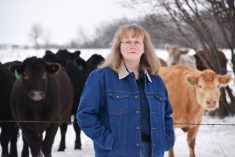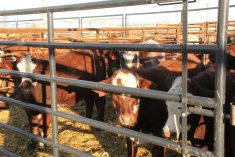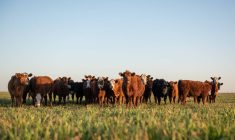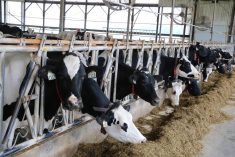Canadian livestock producers have finally succeeded in getting the federal government to initiate a World Trade Organization challenge to the U. S. country-of-origin meat labelling rule.
Their task now is to live with COOL while the WTO case makes its long and torturous way through the system.
It could take up to three years to go through all the hoops: dispute panels, hearings, preliminary decisions, final decisions and appeals.
Even if Canada ultimately wins – and there are no guarantees in international trade law – the world does not stand still. COOL will be in effect during that time and producers need to deal with it.
Read Also
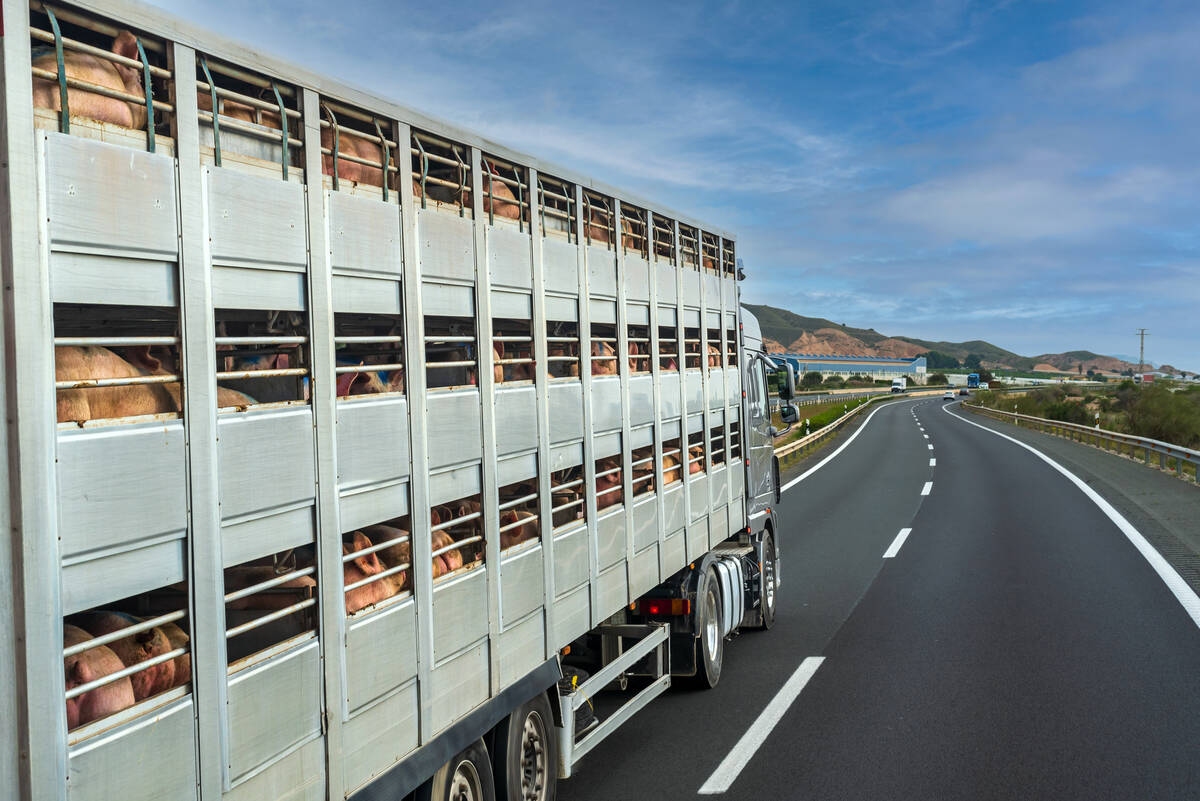
Pig transport stress costs pork sector
Popular livestock trailer designs also increase pig stress during transportation, hitting at meat quality, animal welfare and farm profit, Agriculture and Agri-Food Canada researcher says
For that reason, the Canadian Cattlemen’s Association says it will use a multi-pronged approach to hammer at COOL even while the WTO examines it.
CCA lists five strategies besides the WTO process it plans to pursue while the case is underway.
Lobbying the U. S. Department of Agriculture to make COOL less onerous. The rule is only interim and can still be changed before March 31, 2009.
Encouraging U. S. producer groups to voice their concerns. CCA says American producers are starting to realize COOL, which took effect Sept. 30, means more paperwork for them.
Possibly challenging the rule in the U. S. courts.
Developing strategies to market more Canadian beef to U. S. retailers.
Pressuring Ottawa to restore offshore beef markets (e. g., Korea) that closed their doors to Canadian beef post-BSE.
Back at the WTO, Canada will argue COOL violates an agreement on technical barriers to trade (TBT). Under TBT, meat must be labelled according to where the animal was slaughtered, not where it was born, said John Masswohl, CCA’s international relations director.
Canada can also argue COOL unfairly discriminates against imported products and violates reasonable market access expectations, Masswohl said.
Canada maintains international trade law requires the U. S. to treat Canadian cattle as favourably as its own.
Ottawa announced its intentions to challenge COOL Dec. 1. Both sides must meet within 30 days to see if a settlement is possible. Consultations must last a minimum 60 days. If there is no agreement, the WTO case goes ahead.
In a statement, CCA said COOL “has significantly impeded Canada’s ability to market livestock in the U. S.”
Because U. S. meat packing plants must handle Canadian cattle separately from U. S. cattle at additional cost, many are now refusing cattle from Canada. Plants which still accept Canadian cattle discount them and limit their acceptance to certain days.
CCA posted a map on its web-site showing nearly all plants in the U. S. Midwest no longer take cattle shipped directly from Canada to slaughter. Some still accept cattle born in Canada and raised in the U. S.
The combination of lower prices for Canadian cattle and the higher cost of shipping them to plants that are further away loses producers $90 an animal, CCA estimates.
The association places the total loss to the Canadian industry caused by COOL at $400 million a year, or more than $1 million a day.
Ironically, all this is happening at a time when cattle prices should be increasing, said Masswohl.
The Canadian dollar is lower in value against the U. S. dollar, making exports more lucrative. Feed and energy costs are also lower, reducing producers’ expenses.
But the losses resulting from fewer markets to the south undermine the advantage Canadian producers should have, Masswohl said. “The $90 is an opportunity cost. It’s lost revenue that should be there.”[email protected]






